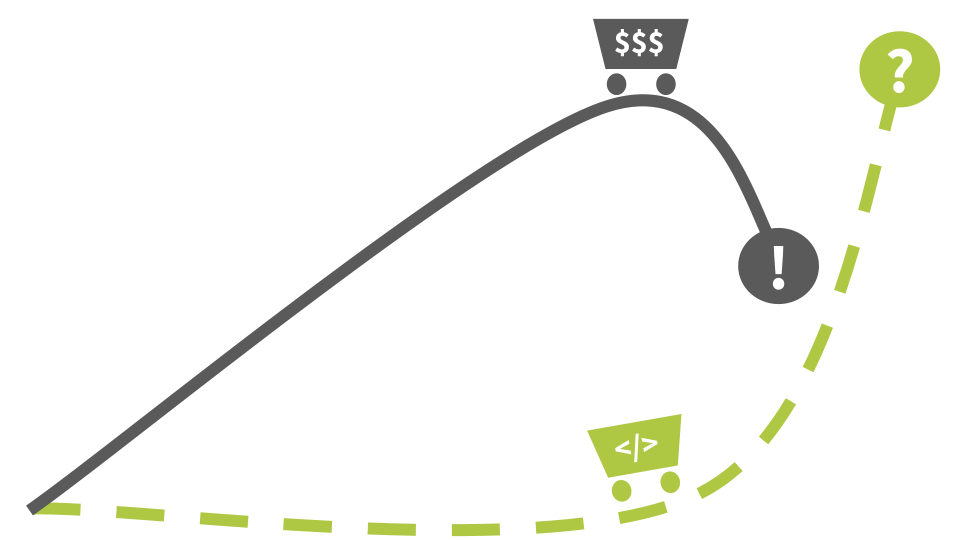With all signs now pointing clearly towards an impending recession, should we be worried about the project of a global Internet of Things? In a word, YES.
First, let’s take account of the global situation halfway through 2022: we’ve collectively endured two years of a global pandemic, inflation and interest rates are taking a greater hike than has been seen in at least a generation, there’s a land war in Europe and supply chains have been disrupted by all the aforementioned events.
Regardless of what comes next, this period hasn’t proven easy on economies nor businesses, especially those in emerging technologies such as the Internet of Things. And, in all transparency, what we’re hearing of late from our colleagues in the field isn’t any more encouraging. Next month we’ll celebrate 10 years of reelyActive, and looking back over a decade in which we’ve seen the majority of IoT startups come and go—even through the best of times—our anniversary might best be described as a notable outlier.
What worries us about an economic recession is that most of the commercial successes in IoT that we’ve witnessed to date are highly predicated on Something-as-a-Service (SaaS), operated by venture-or-investor-backed businesses: the kind that are statistically among the most vulnerable in a recession. Specifically, the failure of a single SaaS business has the potential to decimate all dependent IoT deployments. Moreover, such businesses are strongly incentivised towards a lock-in model favouring perceived profitability over interoperability, making the prospects of finding a timely replacement for a failed SaaS slim to none. As such, a regression of the IoT is a probable outcome of a recession of the economy.
We’re in a position to speak candidly of this as we too developed a SaaS offering—in large part tied to our own fundraising efforts—which we operated from 2016 through 2019. Those fundraising efforts ultimately proved unsuccessful (our first and last round of financing was upon incorporation in 2012!) and, consequently, we made the bold decision to embrace the open source model wholeheartedly moving forward, leading to our Pareto Anywhere middleware today occupying a class of its own while enjoying global reach.
In fact, since 2014, we’ve been actively publishing open source software and middleware under a permissive (MIT) license, prefaced with the copyright notice:
/**
* Copyright reelyActive 2014-20xx
* We believe in an open Internet of Things
*/And, for the reasons we listed above, it should be easy to understand why we would long champion an open Internet of Things. Because frankly, there’s no such thing as a closed Internet of Things (that would just be a bunch of siloed ecosystems!) and yet that’s effectively what has been economically encouraged over the past decade. Iconic figures like Alan Kay, with whom we spoke in 2017 about creating the next computing industry, have similarly argued:
“the goodness of the results is most highly correlated with the goodness of the funding”
Alan Kay
So, if we truly believe in the project of a global Internet of Things, this is perhaps our last opportunity to make sweeping changes to retain the industry’s talent pool that might otherwise be lost through recession and to increase the “goodness of the funding” to favour the application of their skills towards an open, interoperable IoT on which, collectively and sustainably, we might build the next trillion dollar industry, or better yet, we might find a way to live on this planet as if we wish to stay.
